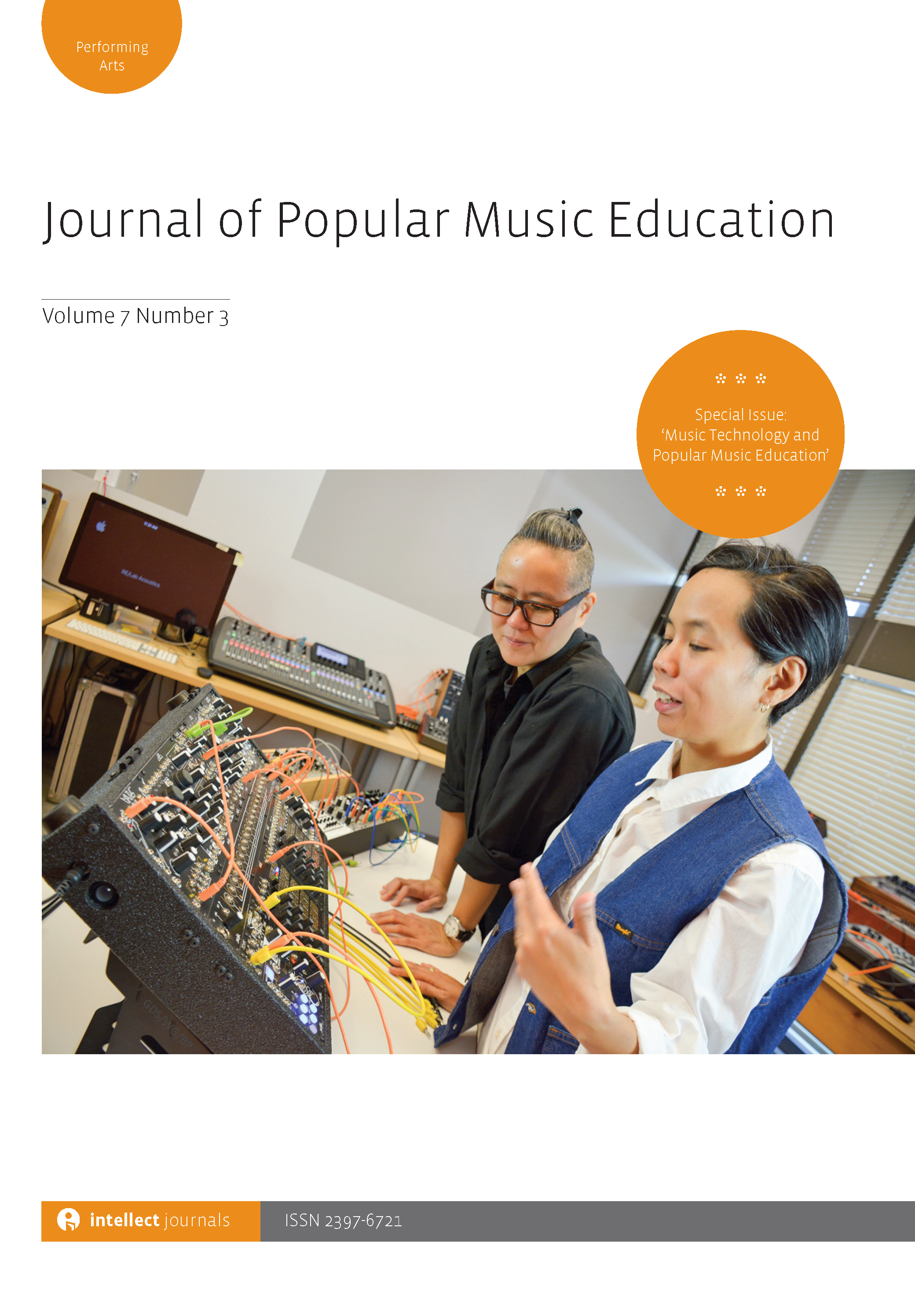
Full text loading...
 , Mari Shiobara2
, Mari Shiobara2
As a popular icon across several cultures in East and South East Asia, Teresa Teng demonstrated and promoted natural, tender and unstrained aesthetics for beautiful singing. Although never included in either Chinese or Japanese formal music education curricula, Teng’s music provided an alternative for people to express their emotions outside of school music education and gradually influenced the aesthetic standard for singing in music education for generations. Through historical and cultural reporting, as well as an autobiographical narration, this article explores the significant influence of Teresa Teng in Chinese and Japanese music education realms from the late twentieth century until today.

Article metrics loading...

Full text loading...
References


Publication Date:
https://doi.org/10.1386/jpme_00084_1 Published content will be available immediately after check-out or when it is released in case of a pre-order. Please make sure to be logged in to see all available purchase options.